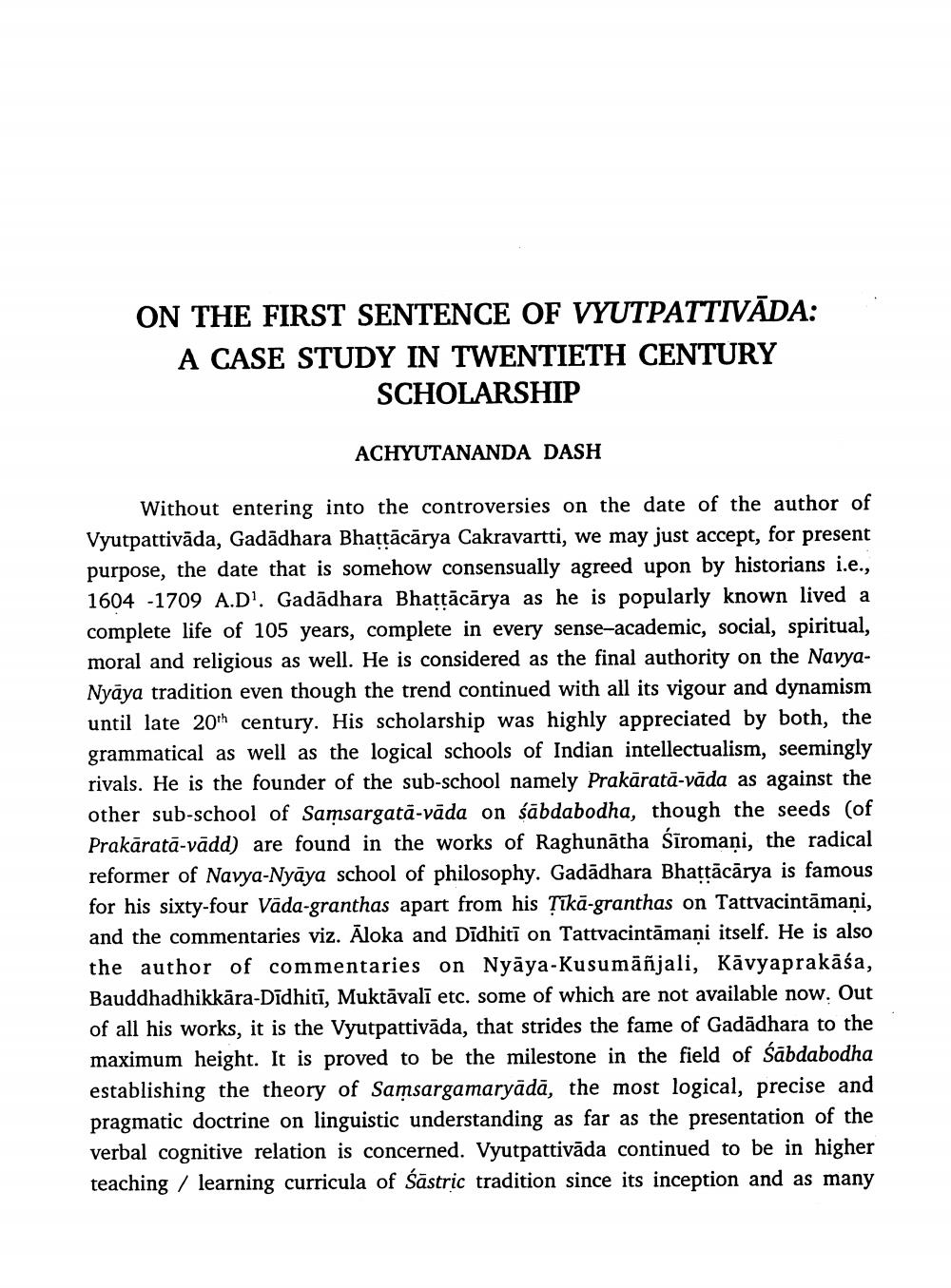________________
ON THE FIRST SENTENCE OF VYUTPATTIVĀDA: A CASE STUDY IN TWENTIETH CENTURY SCHOLARSHIP
ACHYUTANANDA DASH
Without entering into the controversies on the date of the author of Vyutpattivada, Gadadhara Bhaṭṭācārya Cakravartti, we may just accept, for present purpose, the date that is somehow consensually agreed upon by historians i.e., 1604 -1709 A.D'. Gadadhara Bhaṭṭācārya as he is popularly known lived a complete life of 105 years, complete in every sense-academic, social, spiritual, moral and religious as well. He is considered as the final authority on the NavyaNyaya tradition even though the trend continued with all its vigour and dynamism until late 20th century. His scholarship was highly appreciated by both, the grammatical as well as the logical schools of Indian intellectualism, seemingly rivals. He is the founder of the sub-school namely Prakāratā-vāda as against the other sub-school of Samsargatā-vāda on śābdabodha, though the seeds (of Prakāratā-vādd) are found in the works of Raghunatha Śīromaņi, the radical reformer of Navya-Nyaya school of philosophy. Gadadhara Bhaṭṭācārya is famous for his sixty-four Vada-granthas apart from his Tika-granthas on Tattvacintamani, and the commentaries viz. Āloka and Didhiti on Tattvacintamani itself. He is also the author of commentaries on Nyaya-Kusumāñjali, Kavyaprakāśa, Bauddhadhikkāra-Dīdhitī, Muktāvalī etc. some of which are not available now. Out of all his works, it is the Vyutpattivada, that strides the fame of Gadadhara to the maximum height. It is proved to be the milestone in the field of Sabdabodha establishing the theory of Samsargamaryādā, the most logical, precise and pragmatic doctrine on linguistic understanding as far as the presentation of the verbal cognitive relation is concerned. Vyutpattivada continued to be in higher teaching/learning curricula of Śastric tradition since its inception and as many




